- Messages
- 12
- Edit My Images
- No
Congratulations on the double bull: 20,000th post on 500th page - as symmetrical as your marvellous photographs!
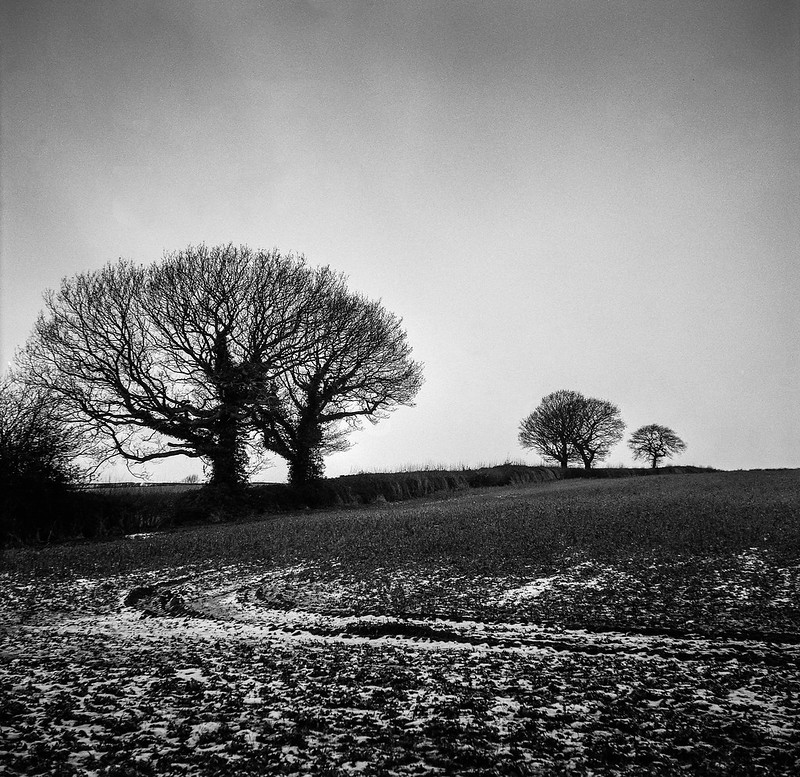
How do you guys digitise your images? Scan your own negs or get them scanned when you get them developed?
I scan my own on an Epson V550 Flatbed.
Is that the negative you scan or a print from the negative?
You scan the negative.
To even produce a print, you or the lab would first need to scan the negative (unless you make an optical print, but very few labs would ordinarily do this).
Personally, I use a lab for colour and do black and white myself.
Yeah I know, I just wondered if he'd scanned the negative in the scanner or a print he had from it lol
 , but I hope it's useful to Shaun.
, but I hope it's useful to Shaun. 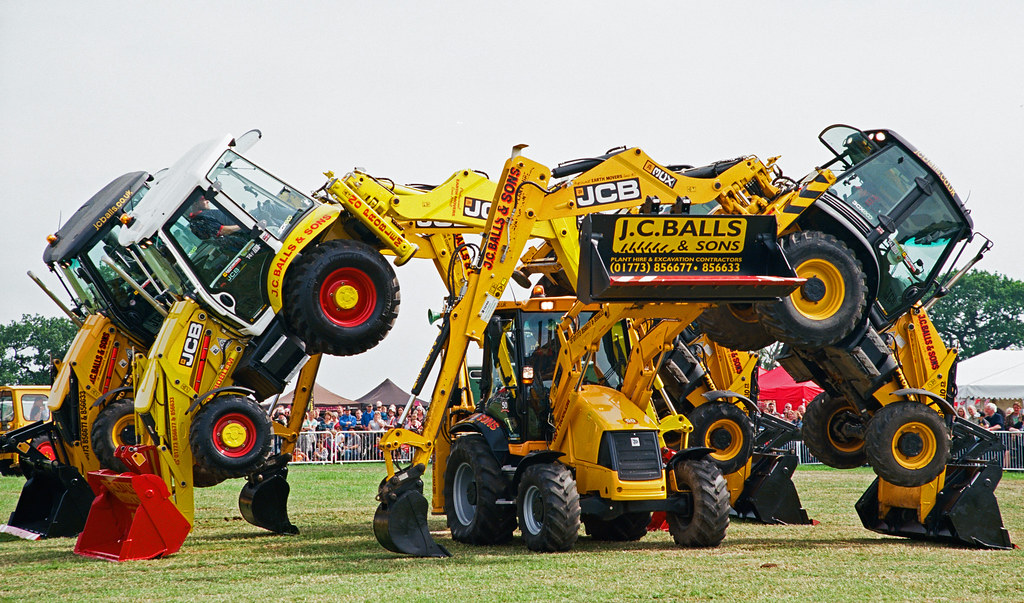 Guard of honour by J White, on Flickr
Guard of honour by J White, on Flickr@Shaun Palmer One thing to bear in mind, the above photo was scanned from a medium format (120 roll film - often abbreviated on here as MF) film negative. I say this because I find that this format tends to deliver noticeably better results from my flatbed photo scanner than 35mm film negatives do. Don't get me wrong, 35mm negative and most 35mm slide scans look OK when scanned on a good-quality 'amateur' type flatbed photo scanner, but dedicated film scanners such as the Plustek range should produce better results (more detail) from 35mm film. However, this means scanning each 35mm image separately, rather than loading one or two full strips of 6 or 12 film negs into a flatbed scanner and letting it go to work while you make a cup of tea or watch TV for 10 mins or so each time you load it.
In summary, I find my flatbed photo scanner is fine for 120 roll film, and does a reasonable job of scanning 35mm film, but if I've taken what I think are likely to be some good photos (or I want to check the results from a newly purchased 35mm film camera or lens) then I'll ask a lab to scan them for me at high resolution. The detail that gives is worth the difference, but does cost significantly more money than just getting the negatives developed and posted back to you.
Here's an example from a high-res scan done by a lab, taken on 35mm Kodak Ektar 100 print film using a Canon EOS-3 SLR fitted with a Canon EF 24-105 IS L lens. If you click on the image it should take you to the Flickr web site where you can view the image a large size (bearing in mind it was re-sized to upload to Flickr), but this should give you some idea of what's possible in good light from a high-quality 35mm camera and lens, modern film, and a high-resolution scan done by a photo lab.
Apologies to the F&C regulars who are probably sick of seeing this photo as I've posted it a couple of times before (and it's not a wonderful photo but it does show the detail that possible), but I hope it's useful to Shaun.
Guard of honour by J White, on Flickr
I've looked at a company that develop a roll of 35mm plus higher res images on a CD for £10 or there abouts so that would do me for now I think
Which lab is that?
I would say that £10 is on the pricey side unless you're using a really good lab like Canadian Film Lab (who offer a UK mailing address and are my lab of choice).
Plus, images by CD is pretty old school nowadays; I know I don't even have access to a CD or DVD player myself. Film Dev are £8 for large dev and scan in 135 format and offer downloads rather than CDs, for instance.
I think quite a few of us on here use AG Photolab and/or FilmDev for developing (and scanning when required), plus some other labs too. There's a couple of threads here on the F&C forum that discuss film labs, etc. which I'm sure you'll find if you scroll down the F&C section thread list. Perhaps the most important thing though, don't rush into buying any kit until you've done your research and found what you think might be right for you.
More importantly, you probably won't know what's right for you until after you've got started and done a bit film photography, so even more reason not to spend more than absolutely necessary to start with. Film photography can be quite a cruel and uncaring beast at times - the first you'll know that something has gone wrong or not turned out as planned will be after you've gone home and paid good money and waited for your film to be developed, and that can be quite a disappointing experience! After being used to the instant results digital photography gives, film photography doesn't suit everyone, so don't go spending a fortune until you're sure it's for you.
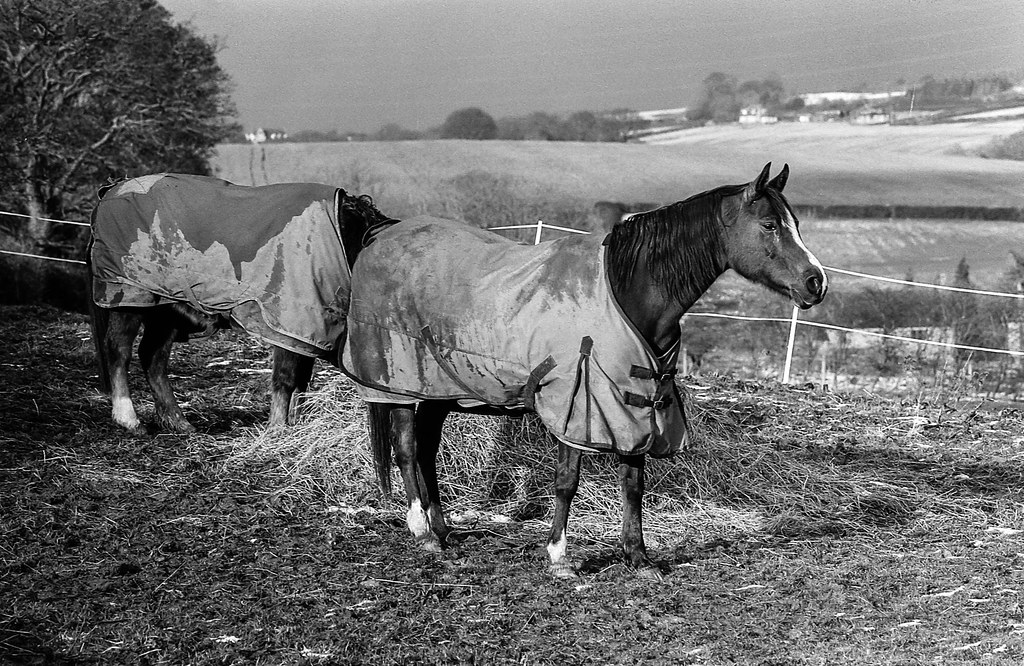
Just realized I've totally hijacked this post with a completely different subject.......sorry
Another scan from my V550. This isn't a flat scan - I do post-process the shots in Lightroom, but it gives an idea of the sort of scan you can get from 35mm film.
Olympus OM-1, Zuiko 135mm f/3.5 & Ilford HP5+.
FILM - Watch where you stick your head by fishyfish_arcade, on Flickr
It's Photo Express, that includes the postage as well, so its actually about £7.50. To be honest I have no idea what the going rate is, or which labs are good/aren't so good as I haven't got that far into researching that side of things yet. However I will check Canadian film labs out
50p per film, quote your TP username.Ahh, you've included the shipping in your price estimate. We're probably highjacking the thread at this point, but I think Photo Express is the one that offers a discount to members of this forum, so keep that in mind.
It's Photo Express, that includes the postage as well, so its actually about £7.50. To be honest I have no idea what the going rate is, or which labs are good/aren't so good as I haven't got that far into researching that side of things yet. However I will check Canadian film labs out
I will have a look through those threads and start gathering a bit more info thanks. I think if i got to a point where I was enjoying film and had a good few batches back from labs, that maybe developing my own negatives and scanning with a high quality scanner would be such a rewarding experience.
The more film shots I see on here just make me so much more determined to get started. I don't even know how to describe it, there's just something about film that makes a photo seem more authentic. That makes sense in my head, not ss much written out lol
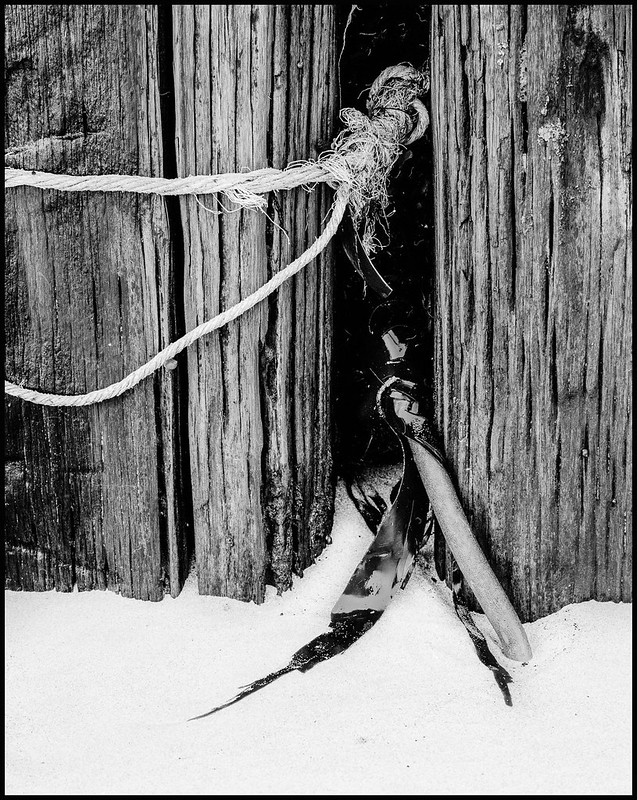
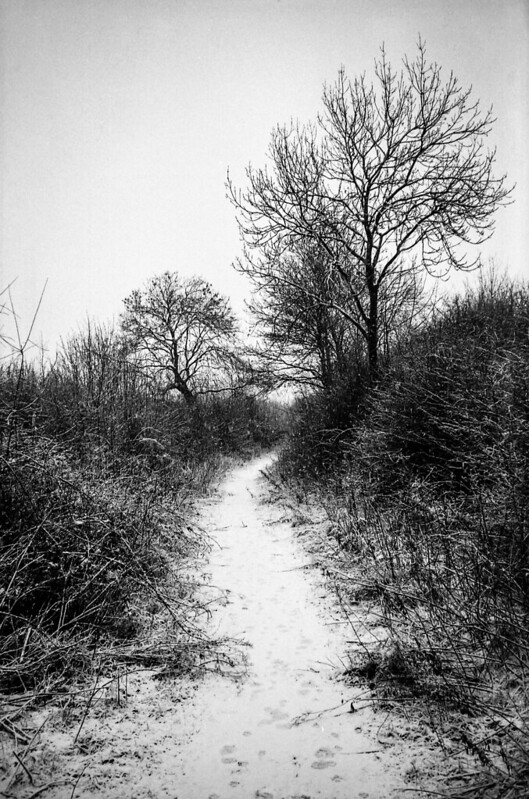
A little piece of Blyth pier. Mamiya RZ67 and Portra 160, converted to mono in Lightroom:
Another from Blyth by Kevin Allan, on Flickr
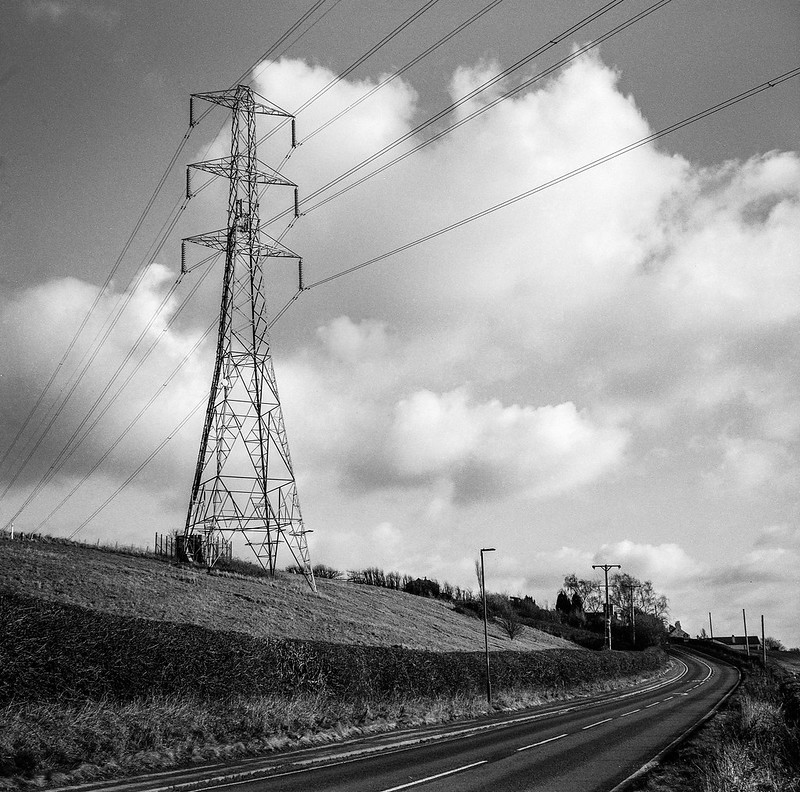
Thanks for the feedback Richard. The high contrast approach was deliberate but it may be a temporary phase !Hi Kevin,
I admire your photography immensely,but,for me you have over cooked this.
I know it is B&W converted,but,to me much over exposed was this because the negative was lacking in light,I am not sure,but,I can see that the contrast is very great.
In my opinion not your best,but,great composition.
Richard.
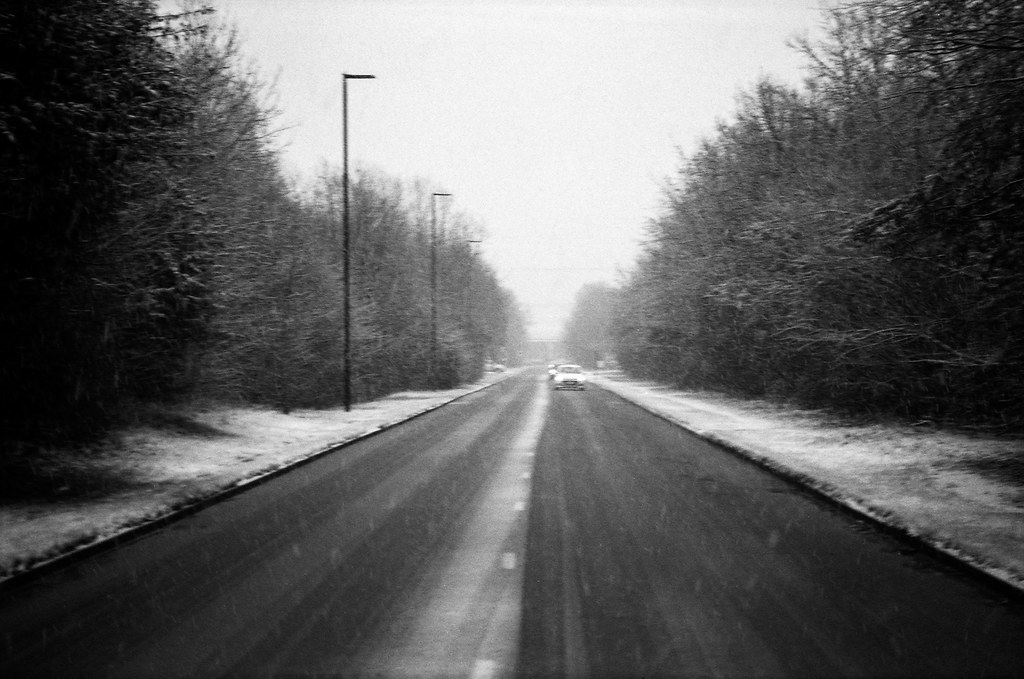
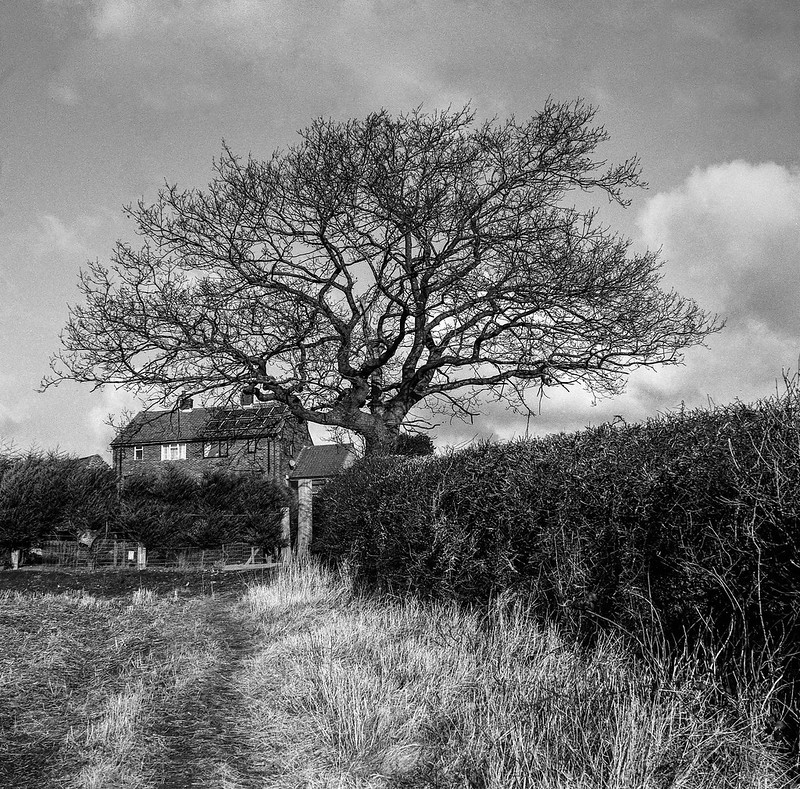
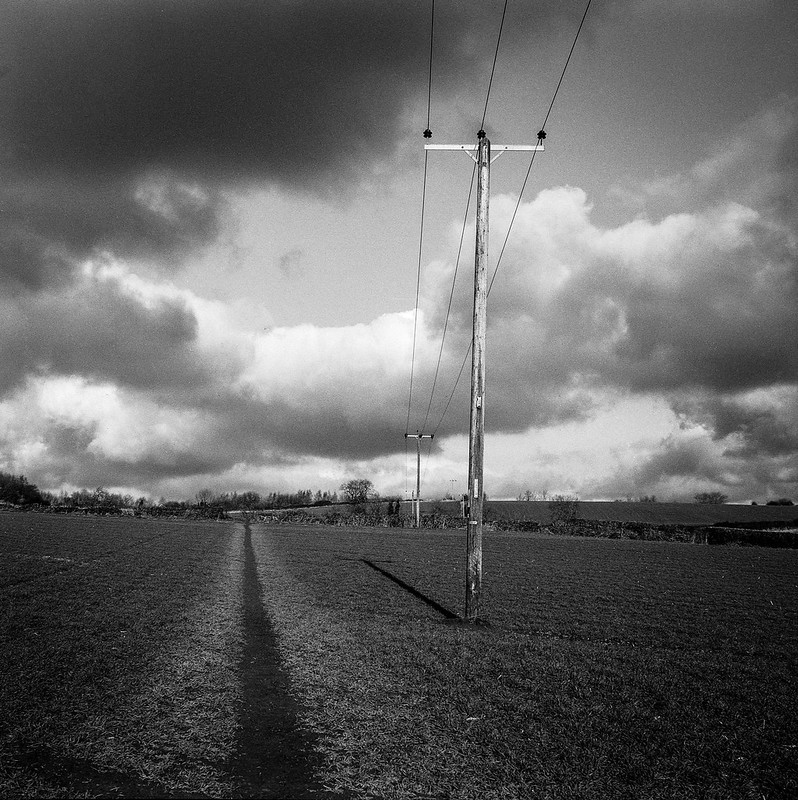
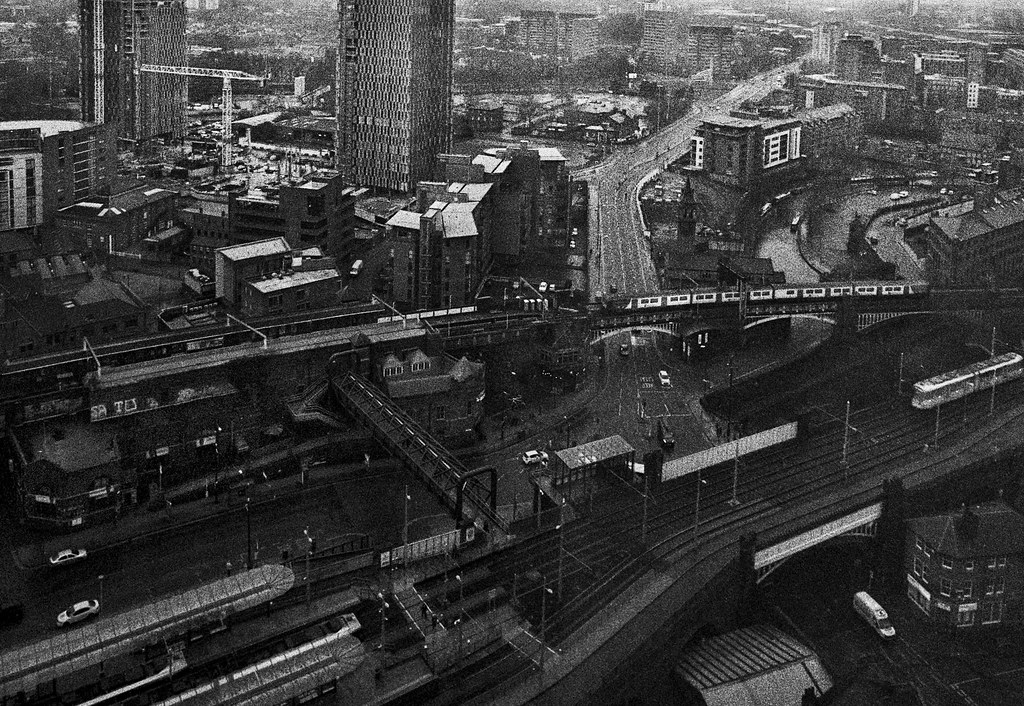 SF_image17611790 - lighter by Lee Turner, on Flickr
SF_image17611790 - lighter by Lee Turner, on FlickrHere's one I posted in the weekly 52 challenge for the category 'Over' - a view over Deansgate in Manchester.
35mm HP5 which expired in 2008 + stand development in Rodinal for 1 hour = golfball size grain. It didn't develop very well with uneven development and very contrasty (might have over agitated half way through). Spent a bit of time fettling it up in Capture One, mainly to even out the tones. It was taken through a grimy window so won't win any prizes for sharpness, or any prizes at all. Taken with an Olympus OM2n and 28mm 2.8.
SF_image17611790 - lighter by Lee Turner, on Flickr





